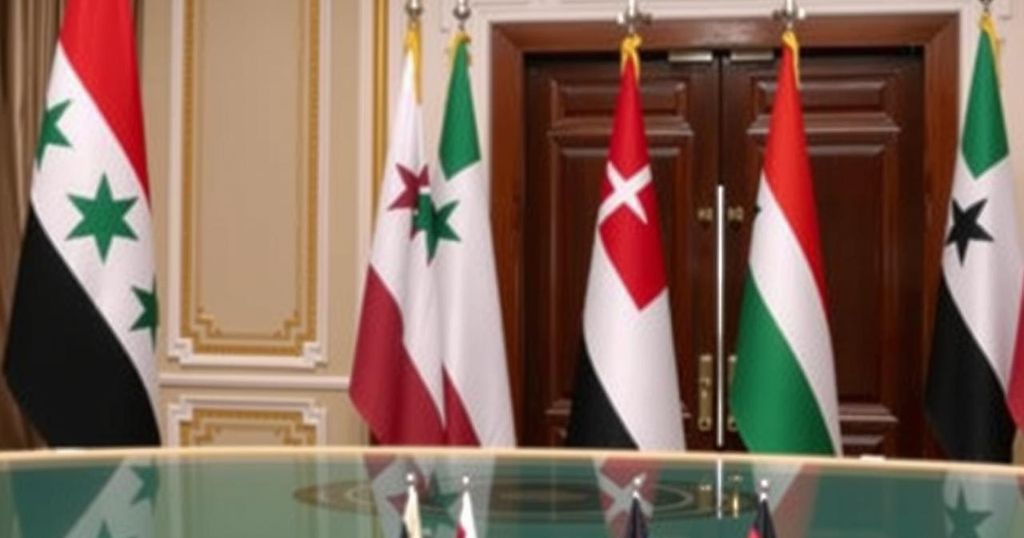Syria’s Foreign Minister Asaad Hassan al-Shaibani is set to visit Qatar, UAE, and Jordan to secure investments crucial for the country’s reconstruction after years of conflict. This follows his recent trip to Saudi Arabia, where discussions focused on humanitarian aid and economic partnerships essential for reviving Syria’s devastated infrastructure. The new government aims to stabilize the nation while navigating complex regional relationships with neighboring countries.
In a significant diplomatic engagement, Syrian Foreign Minister Asaad Hassan al-Shaibani announced plans to visit Qatar, the United Arab Emirates, and Jordan, following his inaugural official trip to Saudi Arabia. This undertaking forms part of the new government’s strategy to attract essential investments from Gulf states for the recovery and rebuilding of Syria, which has been deeply affected by years of conflict. After the ousting of the al-Assad regime, the Syrian leadership, comprised of former rebels, is focused on establishing partnerships that enhance the nation’s stability and economic growth, with specific emphasis on infrastructure development.
Saudi Arabia is poised to play a pivotal role in Syria’s reconstruction efforts, as indicated by al-Shaibani’s recent high-level delegation visit to Riyadh, involving top military and intelligence officials. The King Salman Humanitarian Aid and Relief Centre’s delegation, which arrived in Damascus, aims to foster humanitarian cooperation, in line with Syria’s pressing needs in healthcare, significantly damaged over thirteen years of warfare.
Furthermore, the new health minister, Maher al-Sharaa, has engaged in discussions to restore calm along the contested border with Lebanon, following recent hostilities. Minister al-Sharaa communicated efforts made by the new government to stabilize the region and expressed the importance of diplomatic visits for mutual benefit, inviting Lebanese caretaker Prime Minister Najib Mikati to discuss shared interests in Damascus. This activity illustrates a strategic pivot towards rebuilding both the country’s social fabric and international relations amidst efforts to stabilize the region.
Syria has experienced a prolonged conflict lasting over a decade, which has severely undermined its infrastructure and economy. The recent change in government, following the collapse of the al-Assad regime, has prompted a shift in foreign policy aimed at courting investment and support from wealthy Gulf nations. The involvement of key regional players, particularly Saudi Arabia, suggests an emerging framework for rebuilding, which incorporates humanitarian aid and crucial diplomatic engagement with neighboring states. The situation necessitates a cautious approach to rebuilding efforts while addressing humanitarian needs and political stability.
The diplomatic maneuvers of the Syrian government, led by Foreign Minister Asaad Hassan al-Shaibani, underscore a concerted effort to forge valuable partnerships with Gulf states, chiefly in pursuit of economic recovery and reconstruction. Saudi Arabia’s emerging role signifies a pivotal shift in Syria’s post-war landscape as the new administration navigates the complexities of rebuilding a divided nation while addressing the urgent humanitarian crises. Engaging regional allies remains vital for Syria’s sustainable recovery and stabilization.
Original Source: www.aljazeera.com






